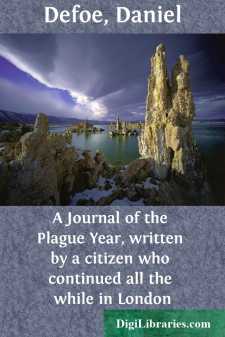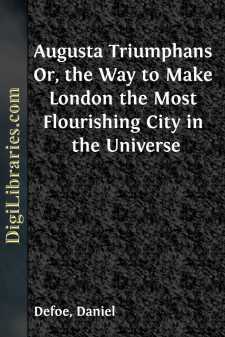Categories
- Antiques & Collectibles 13
- Architecture 36
- Art 48
- Bibles 22
- Biography & Autobiography 813
- Body, Mind & Spirit 142
- Business & Economics 28
- Children's Books 14
- Children's Fiction 11
- Computers 4
- Cooking 94
- Crafts & Hobbies 4
- Drama 346
- Education 46
- Family & Relationships 57
- Fiction 11829
- Games 19
- Gardening 17
- Health & Fitness 34
- History 1377
- House & Home 1
- Humor 147
- Juvenile Fiction 1873
- Juvenile Nonfiction 202
- Language Arts & Disciplines 88
- Law 16
- Literary Collections 686
- Literary Criticism 179
- Mathematics 13
- Medical 41
- Music 40
- Nature 179
- Non-Classifiable 1768
- Performing Arts 7
- Periodicals 1453
- Philosophy 64
- Photography 2
- Poetry 896
- Political Science 203
- Psychology 42
- Reference 154
- Religion 513
- Science 126
- Self-Help 84
- Social Science 81
- Sports & Recreation 34
- Study Aids 3
- Technology & Engineering 59
- Transportation 23
- Travel 463
- True Crime 29
From London to Land's End and Two Letters from the "Journey through England by a Gentleman"
by: Daniel Defoe
Categories:
Description:
Excerpt
FROM LONDON TO LAND’S END
Sir,
I find so much left to speak of, and so many things to say in every part of England, that my journey cannot be barren of intelligence which way soever I turn; no, though I were to oblige myself to say nothing of anything that had been spoken of before.
I intended once to have gone due west this journey; but then I should have been obliged to crowd my observations so close (to bring Hampton Court, Windsor, Blenheim, Oxford, the Bath and Bristol all into one letter; all those remarkable places lying in a line, as it were, in one point of the compass) as to have made my letter too long, or my observations too light and superficial, as others have done before me.
This letter will divide the weighty task, and consequently make it sit lighter on the memory, be pleasanter to the reader, and make my progress the more regular: I shall therefore take in Hampton Court and Windsor in this journey; the first at my setting out, and the last at my return, and the rest as their situation demands.
As I came down from Kingston, in my last circuit, by the south bank of the Thames, on the Surrey side of the river; so I go up to Hampton Court now on the north bank, and on the Middlesex side, which I mention, because, as the sides of the country bordering on the river lie parallel, so the beauty of the country, the pleasant situations, the glory of innumerable fine buildings (noblemen’s and gentlemen’s houses, and citizens’ retreats), are so equal a match to what I had described on the other side that one knows not which to give the preference to: but as I must speak of them again, when I come to write of the county of Middlesex, which I have now purposely omitted; so I pass them over here, except the palace of Hampton only, which I mentioned in “Middlesex,” for the reasons above.
Hampton Court lies on the north bank of the River Thames, about two small miles from Kingston, and on the road from Staines to Kingston Bridge; so that the road straightening the parks a little, they were obliged to part the parks, and leave the Paddock and the great park part on the other side the road—a testimony of that just regard that the kings of England always had, and still have, to the common good, and to the service of the country, that they would not interrupt the course of the road, or cause the poor people to go out of the way of their business to or from the markets and fairs, for any pleasure of their own whatsoever.
The palace of Hampton Court was first founded and built from the ground by that great statesman and favourite of King Henry VIII, Cardinal Wolsey; and if it be a just observation anywhere, as is made from the situation of the old abbeys and monasteries, the clergy were excellent judges of the beauty and pleasantness of the country, and chose always to plant in the best; I say, if it was a just observation in any case, it was in this; for if there be a situation on the whole river between Staines Bridge and Windsor Bridge pleasanter than another, it is this of Hampton; close to the river, yet not offended by the rising of its waters in floods or storms; near to the reflux of the tides, but not quite so near as to be affected with any foulness of the water which the flowing of the tides generally is the occasion of. The gardens extend almost to the bank of the river, yet are never overflowed; nor are there any marshes on either side the river to make the waters stagnate, or the air unwholesome on that account. The river is high enough to be navigable, and low enough to be a little pleasantly rapid; so that the stream looks always cheerful, not slow and sleeping, like a pond. This keeps the waters always clear and clean, the bottom in view, the fish playing and in sight; and, in a word, it has everything that can make an inland (or, as I may call it, a country) river pleasant and agreeable....












